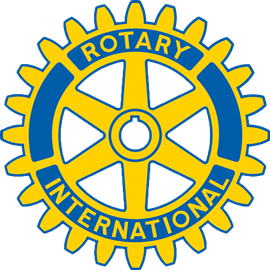LOCATION
901 NJ-168, Suite 407A, Turnersville, NJ 08012
CALL NOW
What is a Chapter 7 New Jersey Bankruptcy Case Discharge?
If a New Jersey Bankruptcy Case is not dismissed or converted to another Bankruptcy Chapter, individual New Jersey Bankruptcy Debtors usually receive a New Jersey Bankruptcy Discharge Order in their Chapter 7 New Jersey Bankruptcy Cases.
A New Jersey Bankruptcy Discharge Order:
- Releases individual New Jersey Bankruptcy Debtors from personal liability for most debts they owe.
- Prevents the creditors owed those debts from taking collection actions against the New Jersey Bankruptcy Debtor.
Because each New Jersey Bankruptcy Debtor's situation is different and because New Jersey Bankruptcy Laws and Federal Bankruptcy Laws change, receiving a New Jersey Chapter 7 Discharge Order is subject to many exceptions.
There are certain types of debts which cannot be discharged in a New Jersey Bankruptcy Case, such as:
- Federal and State Taxes which became due within three years from the filing of the Bankruptcy petition many people are under the misconception that taxes are not dischargeable- this is not true. In fact, taxes due from more than three years from the date you file a Bankruptcy petition may be discharged - but only if you filed your tax return on time (April 15); otherwise the taxes will be dischargeable three years after the time allowed to file in the extension.
- Child Support
- Support Alimony
- Student loans. Most student loans are not dischargeable. However, there is a provision under the Bankruptcy code where you may discharge a student loan if not discharging the loan would create a hardship however it is very difficult to meet this standard.
- Court fines and criminal restitution
- Personal injury judgments/awards entered against you and caused by driving drunk or driving under the influence of drugs
Accordingly, before filing a New Jersey Bankruptcy Case, New Jersey Bankruptcy Debtors should discuss the scope of the New Jersey Bankruptcy case discharge that the New Jersey Bankruptcy Debtor might receive if they file and successfully complete a New Jersey Bankruptcy Case.
Except in cases in which a party in interest files a complaint objecting to the New Jersey Bankruptcy discharge or a motion to extend the time to object to the New Jersey Bankruptcy discharge, the New Jersey Bankruptcy Court usually issues a New Jersey Bankruptcy Discharge Order fairly early in the New Jersey Bankruptcy Case - as soon as 60 to 90 days after the date first set for the New Jersey Bankruptcy 341 hearing.
An individual receives a New Jersey Bankruptcy Discharge Order for most of his or her debts in a New Jersey Chapter 7 Bankruptcy Case. A creditor may no longer initiate or continue any legal or other action against the New Jersey Bankruptcy Debtor to collect a New Jersey Bankruptcy discharged debt. But not all of an individual's debts are discharged in Chapter 7 New Jersey Bankruptcy Cases. Debts not discharged include debts for alimony and child support, certain taxes, debts for certain educational benefit overpayments or loans made or guaranteed by a governmental unit, debts for willful and malicious injury by the New Jersey Bankruptcy Debtor to another entity or to the property of another entity, debts for death or personal injury caused by the New Jersey Bankruptcy Debtor's operation of a motor vehicle while the New Jersey Bankruptcy Debtor was intoxicated from alcohol or other substances, and debts for certain criminal restitution orders.11 U.S.C. § 523(a). The New Jersey Bankruptcy Debtor will continue to be liable for these types of debts to the extent that they are not paid in the Chapter 7 Bankruptcy Case. Debts for money or property obtained by false pretenses, debts for fraud or defalcation while acting in a fiduciary capacity, and debts for willful and malicious injury by the New Jersey Bankruptcy Debtor to another entity or to the property of another entity will be discharged unless a creditor timely files and prevails in an action to have such debts declared nondischargeable. 11 U.S.C. § 523(c); Fed. R. Bankr. P. 4007(c).
Under certain circumstances, the New Jersey Bankruptcy Court has the power to "revoke" a Chapter 7 New Jersey Bankruptcy Discharge Order on the request of the New Jersey Bankruptcy trustee, a creditor, or the U.S. trustee, such as if the New Jersey Bankruptcy discharge was fraudulently obtained by the New Jersey Bankruptcy Debtor or if the New Jersey Bankruptcy Debtor made false statements.
Phone
Location
901 Route 168, Suite 407A Turnersville, N.J. 08012
We are a Debt Relief Agency. We are attorneys who help people file for bankruptcy under the bankruptcy code. The information on this website is for general information purposes only. Nothing on this site should be taken as legal advice for any individual case or situation. This information is not intended to create, and receipt or viewing does not constitute an attorney-client relationship.
Law Office of Ronald E. Norman, LLC


